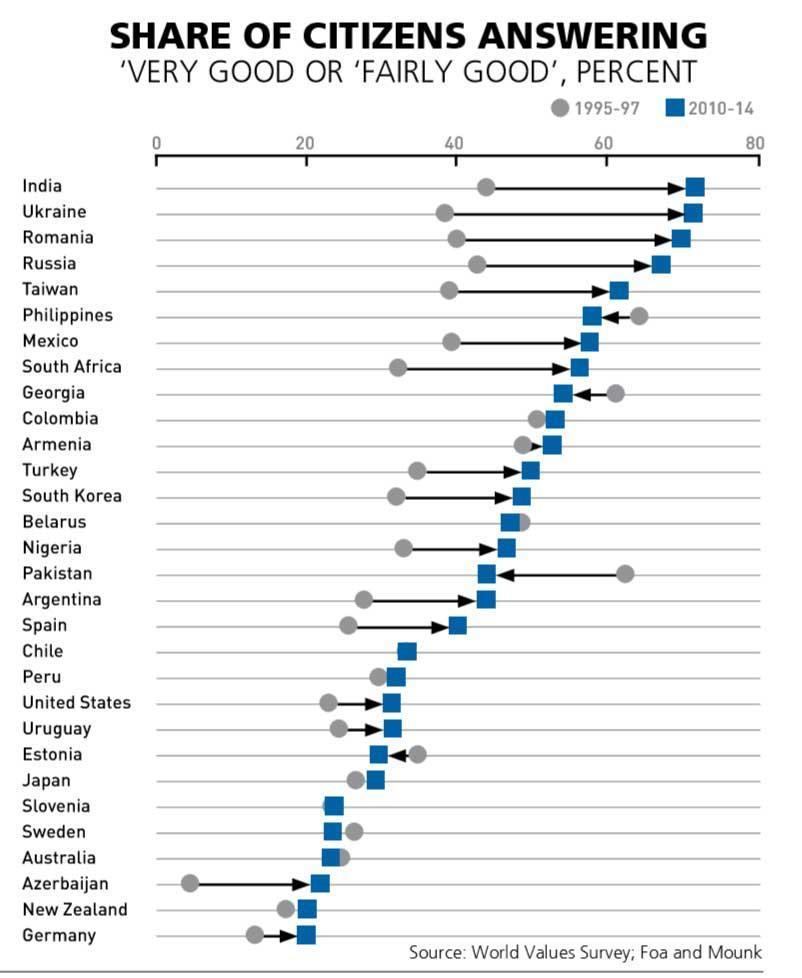Why do leaders have to bother with parliament?
 If you change the word “parliament” with “congress,” it could also be applicable to the United States under Donald Trump and if you like, you could add the word “courts” as well for all strong leaders. Courts can also create problems from time to time for strong leaders who don’t want to waste time in trying to explain what they are really up to and get approval despite being approved by the people through ballot box.
If you change the word “parliament” with “congress,” it could also be applicable to the United States under Donald Trump and if you like, you could add the word “courts” as well for all strong leaders. Courts can also create problems from time to time for strong leaders who don’t want to waste time in trying to explain what they are really up to and get approval despite being approved by the people through ballot box.President İlham Alivey of Azerbaijan, despite being in power with no effective opposition since the passing of his father, Heydar Aliyev, in 2003, decided to increase presidential powers right after the military coup attempt in Turkey on July 15, 2016. On July 26 he announced a referendum to change 29 articles of the constitution which included populist moves like reducing the age to be elected to the parliament to 18 and transferring certain powers from the parliament and the cabinet to the presidency. The purpose of the referendum was explained to the people as to consolidate stability in the oil-rich Caucasus republic and make Azerbaijan stronger.
The referendum was held on Sep. 26, 2016, and approved with a rating of more than 90 percent, with a 70 percent turnout in a campaign in which some members of the opposition who attempted to campaign for a “no” vote was arrested.
One of the articles approved by the Azeri people gave the president the capacity to appoint a “first deputy president,” a title hearkening back to Soviet times or resembling the Baathist regimes of the Middle East who would be the second person in charge, having more administrative powers than the prime minister of the country.
On Feb. 21, İlham Aliyev appointed his wife, Mehriban Aliyeva, who is already a member of the Azeri parliament on the New Azerbaijan Party list, as first deputy president.
There has been a debate in Turkey recently about the power to be given to the president to appoint deputy presidents in the new system – if it is approved in an April 16 referendum – where there would be no prime minister left, and a revision was made so that such appointees would at least possess the qualities of being a candidate for parliament.
You may call it a “Turkish presidential model” if you like, considering that Turks in Azerbaijan and Turks in Turkey are closer than cousins, but a study presented in the Munich Security Conference on Feb. 17-19 demonstrates that there is a global tendency in favor of strong leaders versus parliamentarianism. After all, President Tayyip Erdoğan of Turkey, Donald Trump of the United States, Jacob Zuma of South Africa and Angela Merkel of Germany are all leaders who took power from the ballot box.
The study is carried out by the Stockholm-based World Values Survey and quoted in the Munich Security Report 2017 is not good news for liberal democracies.

The survey compared the answers given to the same question to the citizens of countries with elected parliaments in the periods of 1995-97 and 2010-2014, namely, “Would having a strong leader who doesn’t have to bother with parliament and elections be a good way to run this country?”
The results are really depressing.
Germany seems to be in the best shape but even there, there is a 5 percent rise to 20 percent regarding the question.
India takes the lead with 70 percent, rising from 45. Russia’s rate is around 65. Turkey is in the middle with 50 percent, up from 35. In European Union member Spain, it has risen to nearly 40 percent from 25. Voters in the U.S. also supported the strong leader option to the tune of 30 percent. Even in an advanced and settled democracy like Sweden, there is a slight rise toward a strong leader at 25 percent.
As economies prosper, the level of education and healthcare advances, one could expect that citizens demand more liberal representation and play more role in the decision-making mechanism. But what happens is the opposite: they vote for the strong leaders to get the job done without considering that they might be the next victim of a system with weaker checks and balances. Historian Timothy Garton Ash describes the tendency with the rise of an “populist and nationalist international.” It’s schizophrenic perhaps, but an example of bitter truth in this post-truth world.











